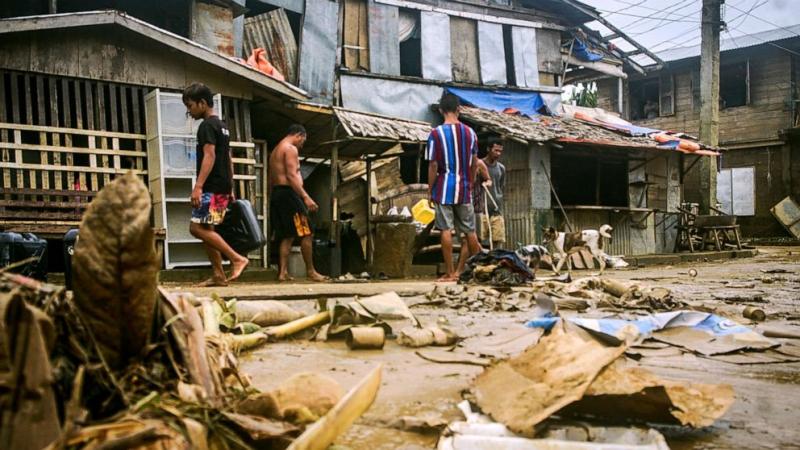Poor communities will likely need to be compensated as a result of climate change policies, study says
By: Julia Jacobo (ABC News)


Time to drop the other shoe. Adopting high-tech solutions for climate change will impose financial burdens on everyone. Naturally those living in poverty will be affected most by those additional costs. Even a small increase in cost becomes a burden for those living in poverty.
What is even more astounding than the tacit admission that high-tech climate solutions are about the money is that the proposed redistribution plans are expected to do so little to address impacts on those in poverty. The progressive redistribution of national carbon pricing revenues is expected to reduce poverty by 6 million out of 350 million living in poverty. Are we supposed to feel good about creating an institutional monstrosity that accomplishes next to nothing?
Creating a marketplace for alternative energy and high-tech, low emission gadgets will only make the rich richer and the poor poorer. The poor already have difficulty competing with more affluent consumers for goods and services in the marketplace. Adopting solutions based on profitability can only make the rich richer while increasing poverty. The high-tech climate change solutions being advocated would become one of the largest transfers of wealth from the poor to the rich in the history of the world.
Maybe it's time to take another look at conservation instead.

Lawmakers and scientists must come together to make sure policies aimed at mitigating climate change do not increase global poverty, according to a new study.
While the impacts of climate change are widely considered to disproportionately affect people living below the poverty line the most, climate change policies, in their efforts to stop the Earth's temperatures from warming even more, could inadvertently increase the financial burden on the poor, researchers say in study published in Nature Communications on Tuesday.
Current socio-economic trends could result in about 350 million people living in extreme poverty by 2030, and this number does not account for the potential impact from climate change or the COVID-19 pandemic.
Even with ambitious climate policies that would limit global warming to below a 1.5 degrees Celsius rise since the 19th century, the number of people living in poverty could still increase by another 50 million, according to the study.
Researchers believe that climate policies should be combined with compensation policies to share the costs of climate change in a "fair way," according to the study.
The model suggested by the authors of the study involves a progressive redistribution of national carbon pricing revenues that could compensate the poor for the additional financial burden as well as potentially lead to about reduction of people living in poverty by about 6 million.
The study also recommends international climate finance transfers as well, since the domestic revenues in places like sub-Saharan Africa are not sufficient enough to compensate for the climate policies in those places.
The research highlights that "climate mitigation does not lead to a disproportionate burden on the poor if combined with national and international redistribution policies."





Forcing people to spend more won't make those consumers any wealthier. But that's the approach being advocated by climate politics. The scientific consensus provides a golden opportunity for profit. Climate politics is becoming welfare for the wealthy.
Conservation efforts are about spending less. Instead of giving our money to the rich, keeping the money in our own pockets can achieve the same thing.
Hi tech drops in price over the years with far more bang for the buck:
Price drops for televisions: 2010 (-24.70%), 2009 (-24.17%), and 2007 (-24.12%). When I first shopped for a flat screen the price was $7000, now it is $700.
In sub Saharan Africa 475million will be mobile users by 2025 ... I suppose they could all go back to beating drums for communications.
Conservation is about funding hi-tech.